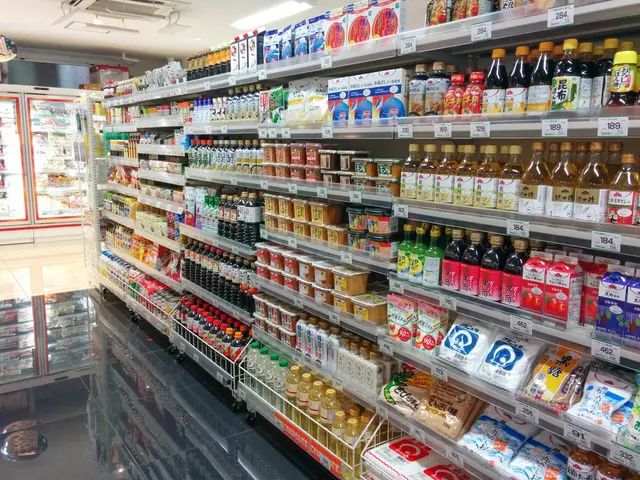Uncovering Germany's Gas Policy: Angela Merkel's role in Gazprom Deals
Gazprom Deal Secured Through Merkel's Discreet Nod
The saga of Angela Merkel's Russia policy has taken a new twist, with recently released documents shedding light on her involvement in gas storage sales to Gazprom. Despite internal warnings and political tensions, Merkel allowed the controversial deals to proceed.
The documents, obtained by "Süddeutsche Zeitung" and made public, reveal Merkel's active role in pushing for the sales, even behind the scenes. This troubling continuity of energy policy has further intensified controversies surrounding Germany's reliance on Russian gas and the annexation of Crimea[1][3].
In 2015, as Russia's relations with Western nations began to deteriorate, gas storage levels in Germany started dwindling, with interruptions in Russian gas deliveries worsening the energy crisis. However, internal government files suggest that these very deals were being orchestrated by Merkel herself, deepening Germany’s ties with Russian gas[3].
Merkel's Support for Nord Stream 2
The documents also reveal Merkel's role in advocating for the Nord Stream 2 pipeline project, which aimed to deliver more direct gas supplies from Russia to Germany. Internal communications show that Merkel was informed as early as September 2015 about asset swaps involving German companies like BASF/Wintershall and Gazprom in the context of the pipeline's development. These swaps would ultimately result in Gazprom gaining a stake in the German gas trade market[3].
Critics argue that the pipeline was a symbol of Germany’s naive Russia policy, demonstrating the country’s excessive dependence on Russian natural gas despite growing political tensions in Europe. The pipeline was eventually halted following Russia's invasion of Ukraine in 2022[3][5].
The Context: A Deeper Look
Angela Merkel's administration's actions can be seen as an effort to secure reliable and affordable energy supplies through closer ties with Russia. However, these decisions have been met with considerable scrutiny in the wake of energy crises and geopolitical fallout from Russia's war against Ukraine[1][3][5].
These revelations come amidst increased calls for an end to Germany's dependence on Russian gas, with many arguing for a shift towards renewable energy sources and diversification of supply[5].
Sources:[1] ntv.de[2] mau[3] Süddeutsche Zeitung[4] DW.com[5] Time.com
- The employment policy within Angela Merkel's administration seems to prioritize securing energy deals with Russia, as seen in her active role in pushing for gas storage sales to Gazprom and advocating for the Nord Stream 2 pipeline project.
- The industry of finance might take notice of the potential risks and controversies surrounding Germany's reliance on Russian gas, especially with growing political tensions in Europe, as evidenced by the Nord Stream 2 pipeline project.
- The documents uncovering Angela Merkel's role in Gazprom deals and her support for the Nord Stream 2 pipeline could ignite debates in politics and general-news regarding Germany's energy policy, industry, and foreign relations, with increasing calls for a shift towards renewable energy sources and diversification of supply.








